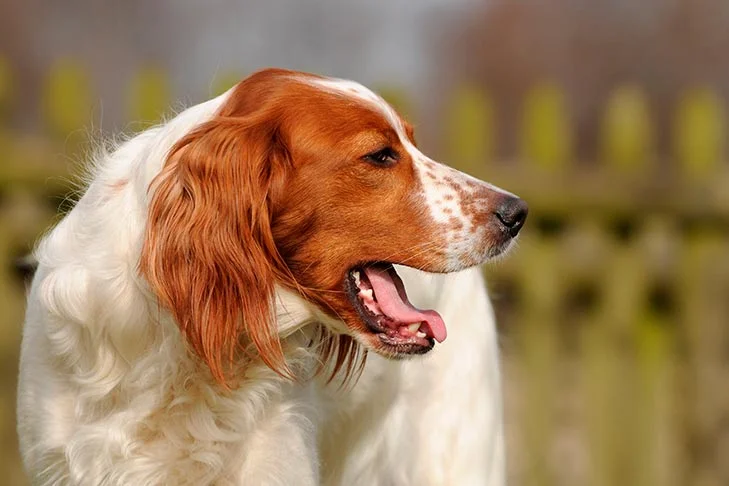Have you ever noticed that your dog makes peculiar noises that resemble the quacking of a duck? It may seem strange and even amusing, but there could be underlying reasons behind this unexpected behavior. In this article, we will delve into the fascinating world of dog vocalizations and explore the possible explanations for Why Does My Dog Sound Like a Duck?
Dogs are known for their diverse range of sounds, from barks and howls to growls and whines. Each vocalization serves a specific purpose, allowing dogs to communicate their needs, emotions, and intentions to humans and other animals. However, when your dog starts producing duck-like sounds, it can leave you puzzled and curious about the cause.
The Mystery Behind Why Does My Dog Sound Like a Duck
Here are some of the reasons Why Does My Dog Sound Like a Duck:
1. Unique Vocalization Styles
One of the fascinating aspects of dogs is their ability to produce a wide range of sounds. While barking is the most common vocalization, some dogs possess a unique vocalization style that may resemble the quacking of a duck. This distinct sound can be attributed to various factors, including genetics and individual anatomy.
Every dog has its own voice, just like humans. Some dogs naturally have vocal cords that produce sounds similar to a duck’s quack. This can be a result of the shape and size of their vocal cords, as well as the structure of their throat and larynx. These dogs stand out from the typical barking or growling, making their vocalizations truly unique.
2. Learned Behavior
Dogs are incredibly observant and can learn to mimic sounds they hear frequently. If your dog spends time around ducks or other animals that quack, they may pick up on those sounds and incorporate them into their vocal repertoire. This imitation can be their way of communicating or simply a form of entertainment.
It’s important to note that dogs are social animals and often seek attention and interaction from their human companions. If they notice that their duck-like sounds grab your attention or elicit a response, they may continue to make those sounds as a means of getting your attention or engaging in play.
3. Medical Conditions
While unique vocalization styles and learned behavior can explain why some dogs sound like ducks, certain medical conditions can also contribute to this phenomenon. Respiratory issues, such as a collapsed trachea or respiratory infections, can cause dogs to produce wheezing or honking noises that resemble a duck’s quack.
If your dog is making duck-like sounds and exhibiting other symptoms such as coughing, difficulty breathing, or excessive panting, it’s crucial to consult a veterinarian. These symptoms could indicate an underlying health concern that requires medical attention. Prompt diagnosis and treatment can help alleviate any discomfort or potential complications.
Practical Recommendations for Addressing Why Does My Dog Sound Like a Duck
Here are the recommendations to follow Why Does My Dog Sound Like a Duck:
1. Monitor Your Dog’s Health
If your dog is producing duck-like sounds, it’s important to monitor their overall health and behavior. Keep an eye out for any accompanying symptoms such as coughing, difficulty breathing, or excessive panting. If you notice any concerning signs, consult a veterinarian to rule out any underlying medical conditions.
2. Seek Veterinary Advice
If your dog’s duck-like sounds are accompanied by distress or other unusual behaviors, it’s crucial to seek professional advice. A veterinarian will be able to examine your dog, perform necessary tests, and provide appropriate treatment if there are any underlying health issues contributing to the vocalization.
3. Provide a Safe and Comfortable Environment
Create a safe and comfortable environment for your dog to help alleviate any potential stress or anxiety that may be causing unusual vocalizations. Ensure they have a cozy bed, plenty of toys, and a designated space where they can relax and feel secure. A calm and secure environment can help reduce any excessive vocalizations.
4. Engage in Positive Reinforcement Training
If your dog’s duck-like sounds are a learned behavior or a way to seek attention, positive reinforcement training can be effective. Reward your dog with treats, praise, and attention when they display desired behaviors and refrain from reinforcing the duck-like sounds. Redirect their attention to more appropriate forms of communication.
5. Provide Mental and Physical Stimulation
Engage your dog in regular mental and physical activities to keep them stimulated and occupied. This can help divert their attention from making duck-like sounds out of boredom or frustration. Interactive toys, puzzle games, and daily exercise routines can keep your dog mentally and physically stimulated, reducing the likelihood of excessive vocalizations.
6. Consult with a Professional Trainer or Behaviorist
If your dog’s duck-like sounds persist or become problematic, seeking guidance from a professional dog trainer or behaviorist can be beneficial. They can assess your dog’s behavior, provide specialized training techniques, and offer valuable insights on how to address the vocalization behavior effectively.
7. Embrace and Enjoy the Quirkiness
While it’s important to address any potential health concerns or excessive vocalizations, it’s also essential to embrace and enjoy the unique quirkiness of your dog’s sounds. Each dog has its own personality and vocalization style, making them special and distinctive. Embrace their individuality and continue to provide them with love, care, and attention.
Remember, understanding the reasons behind your dog’s duck-like sounds is the first step in addressing the behavior. By implementing these practical recommendations and seeking professional guidance when needed, you can ensure the well-being and happiness of your canine companion.

Why Does My Dog Sound Like a Duck
Why Does My Dog Sound Like a Duck – Conclusions
The reasons behind Why Does My Dog Sound Like a Duck can vary. It could be due to a unique vocalization style, learned behavior, or even an underlying medical condition. Understanding the cause can help you better address the situation and ensure your dog’s well-being.
If your dog’s duck-like sounds are a result of genetics or individual anatomy, there is generally no cause for concern. However, if the sounds are accompanied by signs of distress or other worrisome symptoms, it’s essential to seek veterinary care to rule out any underlying health issues.
Remember, each dog is unique, and their vocalizations can be as diverse as their personalities. Embrace the quirkiness of your dog’s sounds and continue to provide them with love, care, and attention.






















